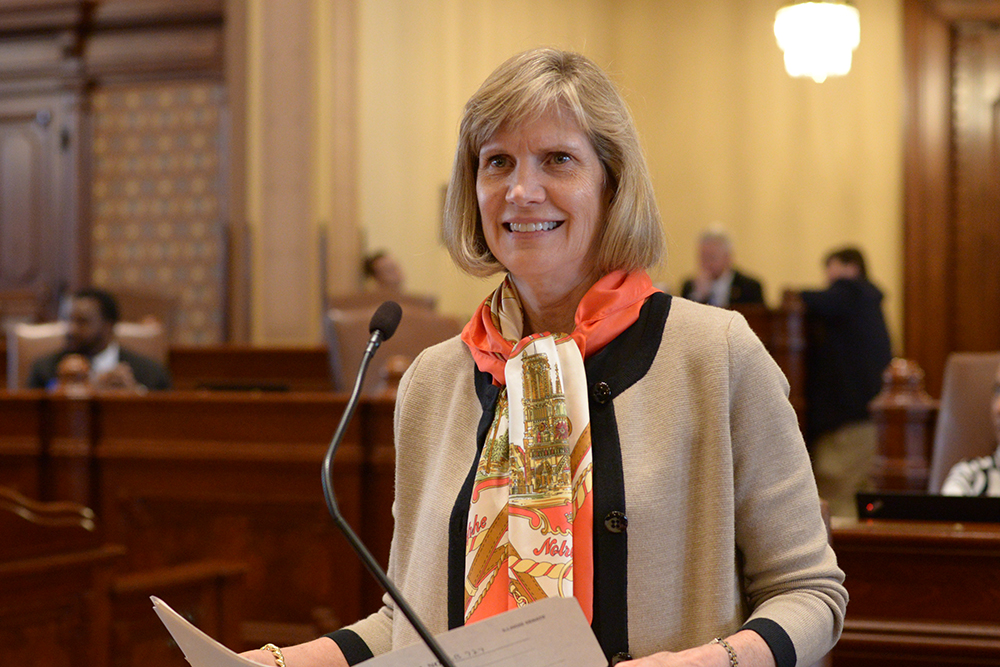
OAKBROOK TERRACE—Illinois Alzheimer’s caregivers and patients will now have an advocate within the Illinois Department of Public Health to oversee the state’s Alzheimer’s efforts, thanks to State Senator Suzy Glowiak Hilton.
Glowiak Hilton’s measure, Senate Bill 1726, which creates the position of Dementia Coordinator in the Department of Public Health to oversee the implementation of the Illinois Alzheimer's Disease State Plan, was signed into law on Monday.
“As someone who cared for a husband and mother with Alzheimer’s disease, I know how impossible it can seem,” Glowiak Hilton said. “Under the leadership of a statewide Dementia Coordinator, those living and caring for those with Alzheimer’s will have an advocate to fight for state policies that will improve their level of care.”
Senate Bill 1726 is an initiative of the Illinois Chapter of the Alzheimer's Association.
The Alzheimer’s Disease Illinois State Plan was established in January 2014 and is required to be updated every three years.
Nationally, the cost of caring for those with Alzheimer’s and other forms of dementia was estimated at nearly $236 billion in 2016, and is expected to increase to $1.1 trillion in 2019 dollars by mid-century. Medicare and Medicaid cover about 68 percent of the total health care and long-term payments. In 2016, the Medicaid cost of caring for people with Alzheimer’s in Illinois was $1.5 billion.
The position was created because previously the state plan could not be implemented by IDPH due to lack of staff and other resources.
“This new position would ensure our state is actively engaged in the fight against dementia,” Glowiak Hilton said.
An equivalent position exists in state government in Georgia, Hawaii, Mississippi, New Mexico, North Carolina, Texas, Utah, Virginia, Washington and Puerto Rico.
Glowiak Hilton urges family members, friends and neighbors to visit www.alz.org/illinois for reliable information, support services and public policy updates on Alzheimer’s.
Senate Bill 1726 goes into effect on Jan. 1, 2020.













 © 2026 Illinois Senate Democratic Caucus
© 2026 Illinois Senate Democratic Caucus